Missing Letters Worksheets for Ages 3-6
6 filtered results
-
From - To
Discover a fun and engaging way for preschoolers aged 3-6 to learn about letters with our Missing Letters Worksheets! These interactive worksheets are designed to enhance early literacy skills by challenging children to identify and fill in the blanks with the correct letters. Perfect for both home and classroom use, our colorful and playful designs will keep young learners entertained while developing their alphabet recognition and writing abilities. Encourage your child's love for learning with these easy-to-follow activities that promote critical thinking and creativity. Download and print our Missing Letters Worksheets today and watch your little ones thrive!
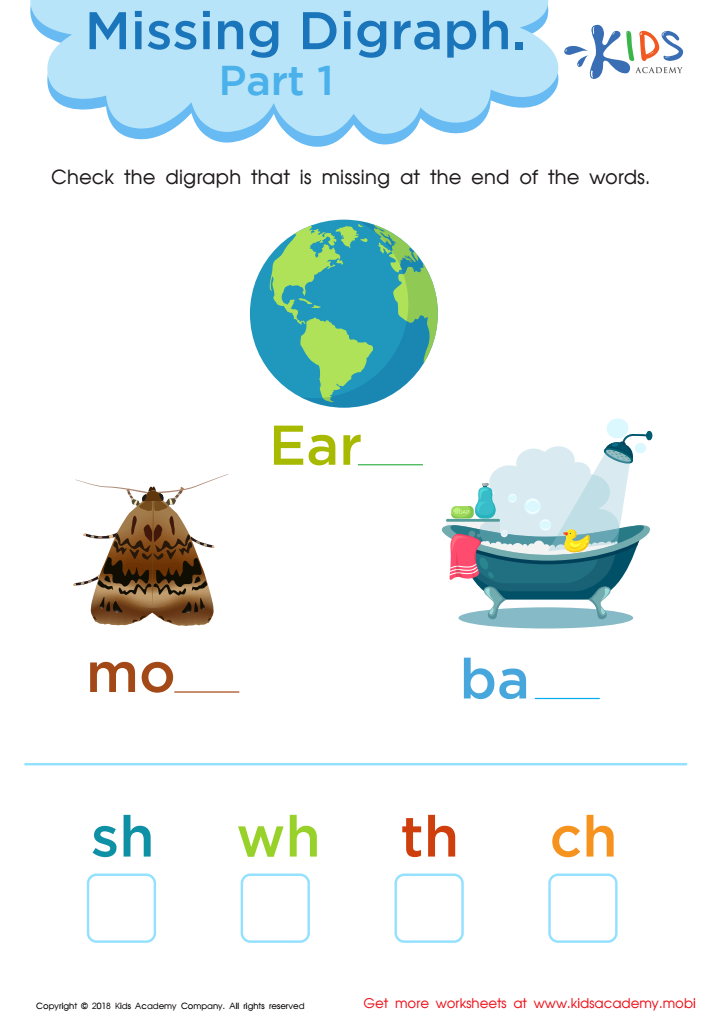

Missing Digraph: Part 1 Worksheet
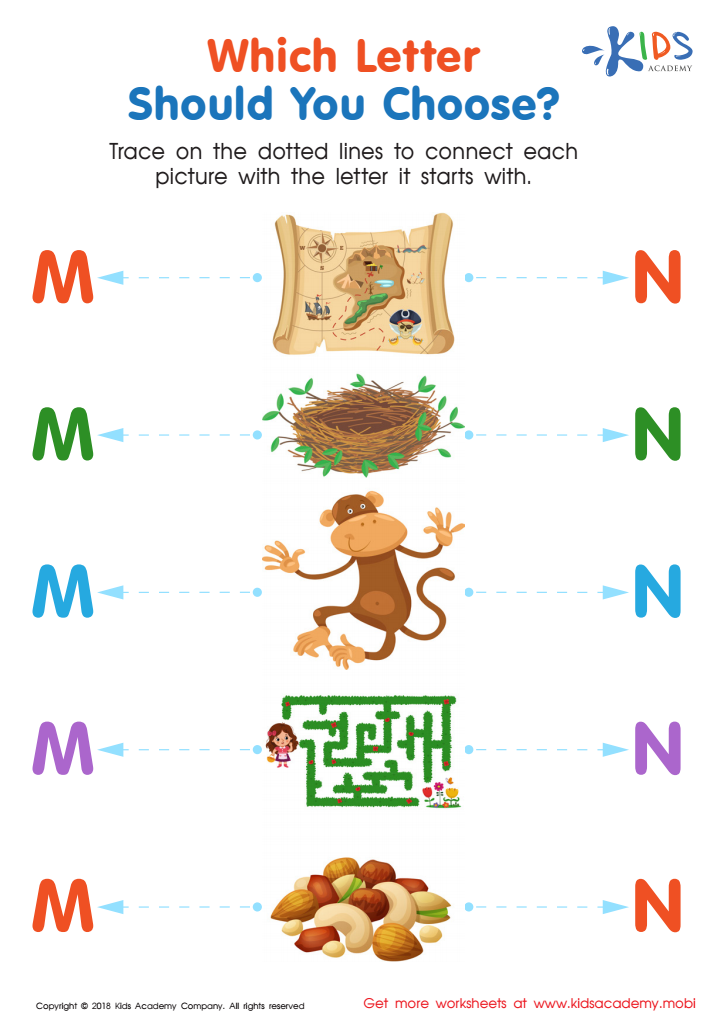

Which Letter Should you Choose? Worksheet
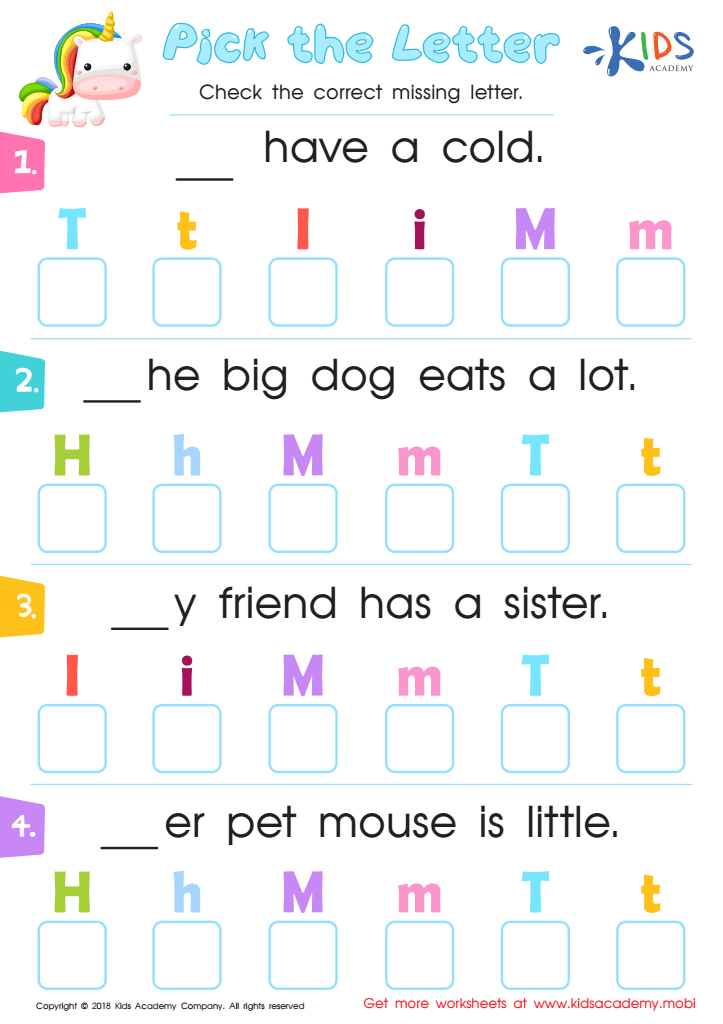

Pick the Letter Worksheet
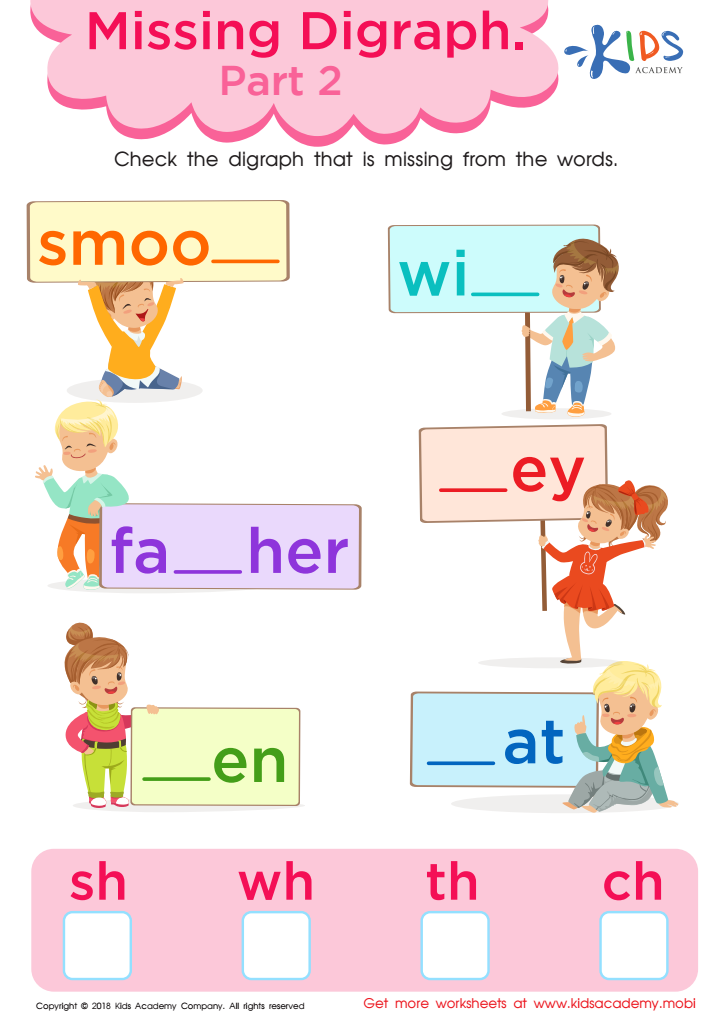

Missing Digraph: Part 2 Worksheet
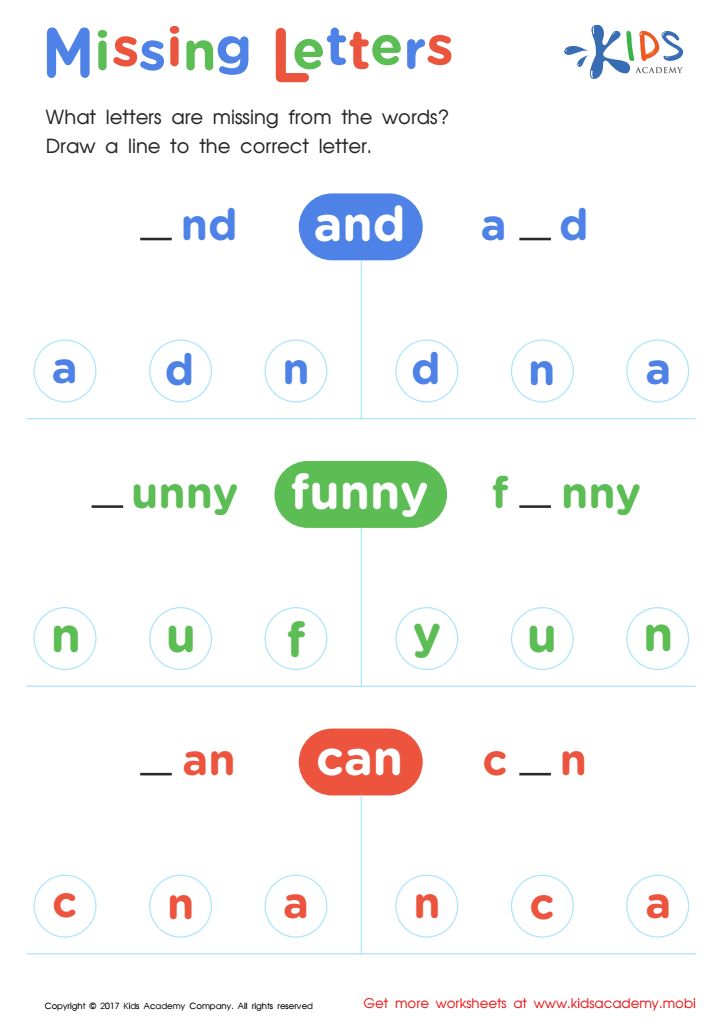

Missing Letters Worksheet
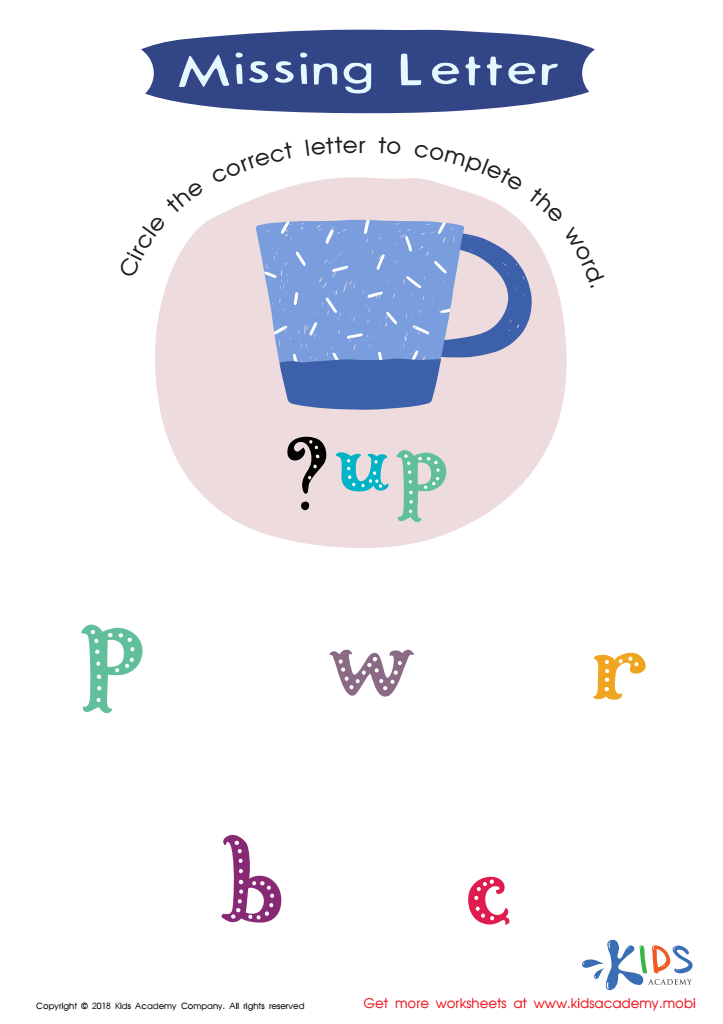

Missing Letter Worksheet
Parents and teachers should care about Missing Letters for Ages 3-6 because it is a fundamental tool for early literacy development. At this crucial stage, children are exploring language and developing their reading skills. Missing Letters activities help young learners identify and understand the alphabet, enhance their phonemic awareness, and reinforce letter sounds in an engaging way.
These exercises also promote critical thinking and problem-solving skills as children work to recognize patterns and fill in the gaps. When children participate in such activities, they boost their confidence in language use, which prepares them for more advanced literacy concepts.
Moreover, these activities provide opportunities for interaction and communication between adults and children, fostering a love for reading and learning. By engaging together, adults can offer guidance, support, and encouragement, creating a solid foundation for children's academic journeys.
Lastly, early interventions in literacy significantly impact a child's future educational success. By prioritizing missing letters and similar activities, parents and teachers contribute to better reading outcomes, ensuring children develop strong language skills that will benefit them throughout their lives. Engaging with missing letters, therefore, is essential not just for immediate learning but also for long-term academic achievement.
 Assign to My Students
Assign to My Students









